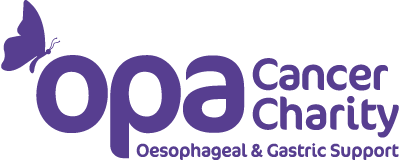In a new research study published in the British Journal of Cancer, researchers found that excess weight in early adulthood, followed by additional weight gain over time, is associated with significant increase in the risk of oesophageal and gastric cardia cancers. The results of two studies with over 400,000 participants found that those with a BMI of more than 25 at age 20 who then progressed to a BMI of 30 or greater at age 50 had a 300% higher risk of oesophageal cancer than individuals with a BMI of 25 or less. Also, the risk of gastric cancer was 400% higher. Both cancers have a very low 5-year survival rate.
According to the researchers, “These results indicate that weight gain during adulthood should be avoided to reduce the risk of oesophageal adenocarcinoma and gastric cardia adenocarcinoma, and underscores the potential of weight control programs for reducing the incidence of these highly lethal cancers.”
Symptoms of oesophageal cancer
According to the Mayo Clinic, there are several signs and symptoms associated with oesophageal cancer:
- Difficulty swallowing
- Unplanned weight loss
- Chest pain, pressure or burning
- Worsening indigestion and heartburn
- Coughing or hoarseness
Unfortunately, as pointed out by Mayo experts, there are very few or no symptoms of oesophageal cancer in its early stages. However, Barrett’s oesophagus, a precursor to cancer and a complication due to the progression of GORD, is a possible first diagnosis for many. Unfortunately, Barrett’s oesophagus has a higher risk of progressing to oesophageal cancer.
Things you can do if you are concerned about oesophageal cancer
First, RefluxMD encourages anyone with GORD symptoms of 10 years or more to partner with a GORD expert and establish a regular surveillance plan to monitor the condition of your oesophagus. This examination will typically require an endoscopy examination and can include biopsies of the oesophagus. With that partnership in place, design a comprehensive approach to reduce your risk by focusing on these key changes:
- Maintain a BMI of 24 or less. As we have documented in our article about excess weight and GERD, achieving and maintaining a healthy BMI will often eliminate or significantly reduce GERD symptoms. By reducing pressure on the lower oesophageal sphincter (LOS) and the diaphragm, the LOS may provide its barrier function. Both Sandy Mason and MJ realized this benefit with weight loss via Scale Down with Relief program.
- Adopt a GORD-friendly diet. What you eat, when you eat, how much you eat, and how frequently you eat can have an impact on GORD symptoms. Our article that discusses the five steps to an acid reflux diet offers several options to consider. In RefluxMD’s Recipe for Relief, a more detailed GORD-friendly meal plan and diet program are presented with over 90 healthy recipes and a 21-day meal program.
- Use less powerful medications. PPIs are the most powerful medication available today, and unfortunately, readily available at pharmacies, grocery stores, and warehouse stores. These medications do not cure GORD; they only mask the symptoms associated with GORD. Regurgitation can continue and the disease can progress to Barrett’s oesophagus or oesophageal cancer. Also, daily long-term PPI use is associated with many health risks that must be weighed against symptom relief.
- Make the necessary lifestyle changes. There are many lifestyle changes that can reduce symptoms such as:
- Eliminate or curtail the consumption of alcohol
- Stop smoking
- Eat smaller portions, and consider 5 or 6 smaller meals during the day
- Never eat within 3 hours of going to bed
- Raise the headboard of your bed by 7 inches
- Consider experimenting with natural home remedies, like apple cider vinegar
- Drink alkaline water
Getting started on your path to relief and good health
Maintaining a healthy body mass index (BMI) is the single most important element to optimal health and long-term relief. The risks of oesophageal cancer associated with weight gain later in life can be offset by weight loss. Also, many adults that achieve and maintain a healthy BMI find symptom relief. A research article by Hashem El-Serag MD MPH titled The Association Between Obesity and GERD: A Review of the Epidemiological Evidence, the connection between excessive weight and GORD was clear and convincing: “This meta-analysis indicated that obesity was associated with a significant 1.5- to 2-fold increase in the risk of GORD symptoms and erosive esophagitis, and a 2- to 2.5-fold increase in the risk of oesophageal adenocarcinoma as compared to individuals with normal BMI.”
Get started today. Your health is your wealth, and your health next year can be much better with some hard effort this year. YOU CAN DO THIS!
This article is from Reflux MD – https://www.refluxmd.com/weight_gain_and_esophageal_cancer/


